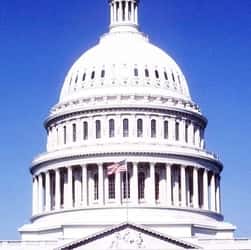 Four U.S. senators introduced natural gas vehicle (NGV) legislation Tuesday that has a familiar moniker and mission, but contains new pay-for measures that could position the bill for strong bipartisan support and a smoother path to passage.
Four U.S. senators introduced natural gas vehicle (NGV) legislation Tuesday that has a familiar moniker and mission, but contains new pay-for measures that could position the bill for strong bipartisan support and a smoother path to passage.
The New Alternative Transportation to Give Americans Solutions (NAT GAS) Act of 2011 – introduced by U.S. Sens. Robert Menendez, D-N.J.; Richard Burr, R-N.C.; Saxby Chambliss, R-Ga.; and Majority Leader Harry Reid, D-Nev. – shares many elements with its companion bill in the House (H.R.1380) and other pieces of legislation that have seen action in Congress over the past few years.
At its core, the Senate bill is a pure incentives instrument aimed at supporting NGVs, natural gas fuel – both compressed natural gas (CNG) and liquefied natural gas (LNG) – and fueling infrastructure. The objective is to set policy that increases domestic production of NGVs and fattens the NGV supply chain.
The bill seeks to reinstate tax credits for NGV purchases and conversions that expired at the end of last year, as well as to extend credits for fueling infrastructure that are set to expire at the end of December. The legislation would also implement a new production tax credit to encourage vehicle manufacturers to bring new NGVs – particularly light-duty NGVs – to the market.
The major difference between this bill and those that precede it is a proposal to roll out a ‘user fee’ in 2014 that would pay for the incentives contained in the legislation. These fees would be separate from the excise tax imposed on CNG and LNG, and they would run through 2021.
Richard Kolodziej, president of NGVAmerica, tells NGT News that the Senate bill
exchanges eight years of fees for immediate assistance in bringing down the up-front costs associated with NGV purchases and conversions.
‘If we could just get the initial costs down, the market would take off,’ he says, noting that the new legislation's pay-for provisions will likely make it more palatable for a wary Congress that is closely guarding the federal government's coffers.
The Senate bill will next be deliberated in the Finance Committee. The House bill, meanwhile, has garnered the support of 181 co-sponsors to date.






